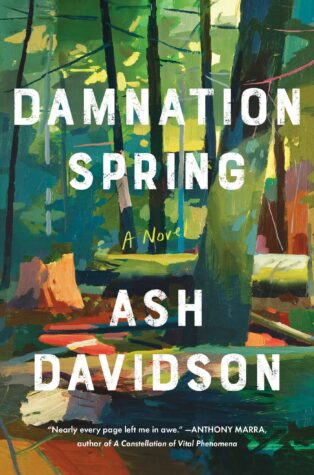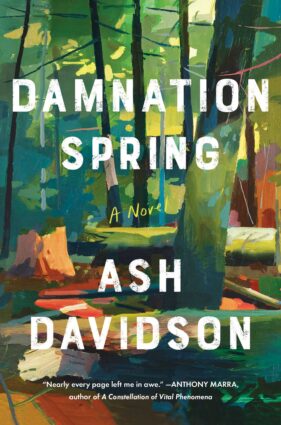
Colleen and Rich Gundersen are raising their young son, Chub, on the rugged California coast. It’s 1977, and life in this Pacific Northwest logging town isn’t what it used to be. For generations, the community has lived and breathed timber; now that way of life is threatened.
Colleen is an amateur midwife. Rich is a tree-topper, a dangerous job that requires him to scale trees hundreds of feet tall, a job his father and grandfather died doing. Rich secretly spends their savings on a swath of ancient Redwoods and fashions his life to support his deceit. Colleen, who has suffered eight miscarriages and is desperate to have a second baby, challenges the logging company’s use of herbicides that she believes cause the miscarriages and birth defects in the community. Tensions mount as loggers fight for their jobs even though their employer appears to be poisoning them.
You know those shows/books when a character tells a big whopper and continues to build on that lie until he or she is caught? Well, this book gave me anxiety, because I knew in the end the consequences for Rich’s deceit were going to be horrendous.
Ash Davidson’s debut was beautifully and lyrically written. Her descriptions of people and places were impressive; I felt like I was in the community and could see the people and the sites. Here’s a description of one person: “… heavy torso thrust forward like a toad walking upright.” Can’t you just picture that?
The author was born in Arcata, California, the epicenter of the Damnation Spring, and she clearly did her research about the era and the challenges facing the logging industry, (albeit she included too excessive minutiae about the processes involved in harvesting timber.) The book also contained fascinating information on the effects of toxins such as Agent Orange. It authentically set in the late 1970s—the clothes they wore, the cars, they drove, the foods they ate. Tab, Coca-Cola’s first diet soft drink was all the rage (discontinued in 2020) and I had plenty of friends who depended on it. Yuck.
Although much of the novel was gorgeous, it was heavy on metaphor and simile, and the multiple narratives didn’t work written in third person. Her overuse of words and phrases was distracting. “Burl bowl” was used 15 times.
In the end, Damnation Spring is about a heart-wrenching clash between environmentalists and loggers that destroyed families and an industry by an author to watch. 3.5 stars.
Published Date: August 2021
Genre: Mainstream fiction
Read-alikes: The Same River by Lisa M. Riddick, The Lowering Days by Gregory Brown, The Overstory by Richard Powers
* Thanks to the publisher and NetGalley for a review copy of this novel. The opinions are my own.
